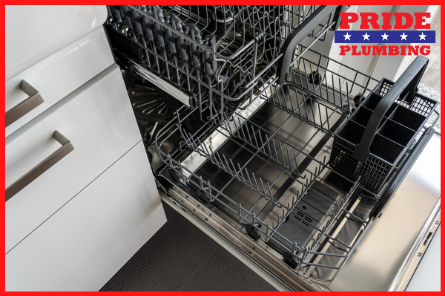Dishwasher Problems:
When to Repair or Replace
Introduction
Just the thought of dirty dishes filling your sink probably keeps your dishwasher on full-time duty. But what happens when your appliance isn’t cleaning dishes properly or simply doesn’t run at all?
The convenience of having to just load the dishwasher and let it handle all the hard washing work is something that can’t be calculated. It saves time and effort, and in many cases, cleans far better than hand washing alone.
Dishwasher cleaning problems may simply be the result of incorrect operation, or they could also be the result of mechanical failure. How do you know when to take matters in your own hands or call in plumbing professionals to take on the task?
Common Dishwasher Problems
Dishes don’t get clean.
Homeowners often complain that their dishwasher just doesn’t offer quality washing. When first installed, the appliance might have left dishes and glasses sparkling clean, but over time, they don’t turn out as clean as when the dishwasher was new. Dishwasher inefficiency may be the result of detergents or incorrect wash cycles. Today’s dishwasher detergent is very effective at getting dishes clean, but this soap relies on the right water temperature and enough food particles to chemically react together for cleaning. Many manufacturers now recommend only scraping plates rather than rinsing prior to operating the machine.
Washer makes loud noise.
When a dishwasher starts becoming noisy during operation, it may mean that debris is trapped in the drain pump, washer arms are obstructed by dishes, or the motor or pump is damaged.
Water does not fill the machine.
Dishwashers rely on water for proper cleaning. If the appliance is not filling up with water, it may mean that a valve, circuit board or overfill protector is broken.
Appliance does not turn on.
A simple solution if the dishwasher does not power on is to check the home’s circuit breaker to ensure it isn’t a result of a trip. Otherwise, the door latch or circuit board may be broken.
Dishes are not dry after operation.
This issue may be a matter of an improper cycle selection for “heat dry,” or something more serious such as water not draining or heating element not functioning.
Should You Repair or Replace the Unit?
Decisions about repairing or replacing your home dishwasher are often solely the result of family budget issues. Major dishwasher problems such as broken heating elements, circuit boards or valves usually require a plumber to handle. The best procedure is to obtain estimates for repair and then compare the estimate to the cost of purchasing a new dishwasher.
When evaluating repair estimates, you will need to take into account the age and condition of your present model. If repairing the dishwasher is more than 50 percent of the cost to replace, then you will benefit from completely replacing the unit.
Call your neighborhood plumber, Pride Plumbing at, 585-271-7150 or schedule an appointment online


